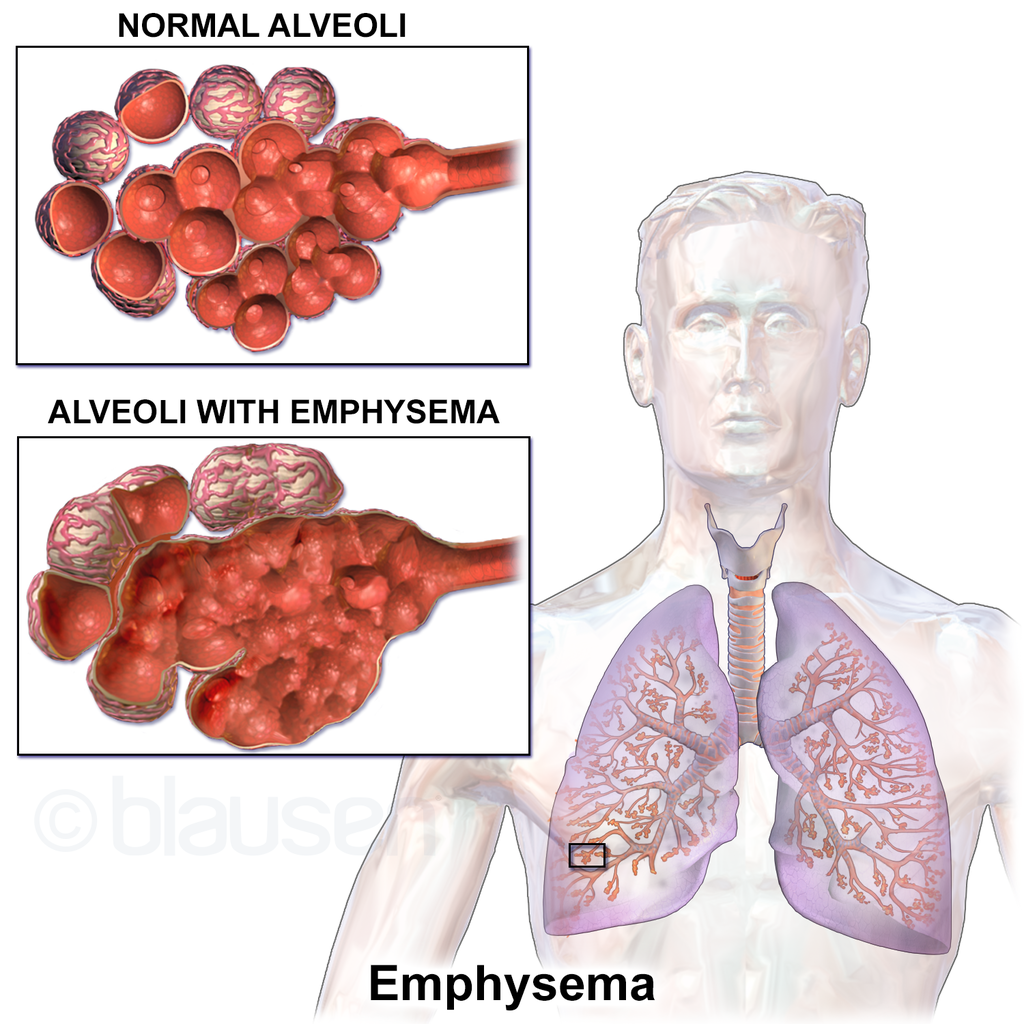Chronic obstructive pulmonary disease, or COPD, is a long-lasting inflammatory lung disease that leads to blocked airflow and breathing problems. These may include coughing and wheezing. Though the condition worsens over time, treatment is possible, enabling most patients to control their symptoms and improve their quality of life. The most common cause of COPD is prolonged exposure to particulate matter, predominantly cigarette smoke. However, scientists also speculate that genetic variations might play a role in COPD and other respiratory issues such as emphysema and asthma.

When the body encounters cigarette smoke, it mounts an immune response, partly by recruiting inflammatory cells that produce a protein called matrix metalloproteinase-12 (MMP12). Smokers generally have a higher MMP12 gene expression than nonsmokers, and it appears to be linked with overall lung function and COPD risk factors.
Based on these connections, a study published in The New England Journal of Medicine investigated if MMP12 variations might influence lung function and serve as risk factors for COPD, especially in vulnerable groups.
The Study
Researchers used seven diverse cohorts, totaling over 8300 participants, including both children and adults, to explore the relationship between MMP12 variations and lung function. They examined additional cohorts to uncover the effects of these variations on COPD development. Finally, lung function was assessed through a standard measure of forced exhalation, known as FEV1.
The cohorts were notably varied, including groups predominantly of children with COPD risk factors like tobacco smoke exposure and asthma, as well as multiple adult groups.
Results
Through their analysis, the authors discovered that an MMP12 variant could determine lung function in subjects with previous risk factors for lung disease.
First, the authors discovered two SNPs associated with improved lung function in the two child cohorts where most children had asthma. Using a third cohort more representative of the general population, they looked closer at one of these SNPs, noting a similar association with improved lung function.

Could this association be present in adults as well? They repeated their measurements with the adult groups and saw that this SNP was again associated with improved lung function in three of the four cohorts tested. Additionally, the SNP that improved lung function only appeared to have this effect in current and former smokers, not those who had never smoked. The authors also determined that the variant was significantly associated with a 35% decreased risk of COPD.
The findings in this paper strongly suggest that MMP12 plays a significant role in lung function and COPD susceptibility in high-risk groups. Unraveling this genetic connection with environmental factors like smoking takes us a step closer to personalized medical interventions, potentially leading to more effective prevention and treatment strategies for COPD and other lung-related conditions.
Explore your Genome!
Did you know you can use the Nebula Genome Browser (available with Deep and Ultra Deep WGS) to check whether you have protective variants?
- Go to the Genome Browser. In the top left corner of the genome browser, you can find a search bar.
- The authors identified multiple independent variants in MMP12 that contribute to protection. The rsID is rs2276109.
- Using the dbSNP database, you can find that the genome coordinates in the format [chromosome number][chromosome location] is 11:102875061 (GRCh38 reference genome).
- Copy-paste this location into the search bar and press enter.
- The genome browser will now zoom in on this location.
- Activate the “Center Line” in the bar at the top to better see the location that you are looking at.
- You should see stacked, gray stripes. Those are your personal DNA sequencing reads that are aligned to a reference genome sequence (colored letters above). If your DNA sequence matches the reference, then the stripes are gray. If the sequence is somehow different from the reference, then you will see various letters and symbols in different colors.
- For the variant rs2276109, you have a protective allele if you see a G. The chances of having G as the reference allele depends on your ancestry. Remember that the protective alleles are only extra protection! The group that doesn’t have them is at no greater risk than the general population.
Citation
Hunninghake GM, Cho MH, Tesfaigzi Y, Soto-Quiros ME, Avila L, Lasky-Su J, Stidley C, Melén E, Söderhäll C, Hallberg J, Kull I, Kere J, Svartengren M, Pershagen G, Wickman M, Lange C, Demeo DL, Hersh CP, Klanderman BJ, Raby BA, Sparrow D, Shapiro SD, Silverman EK, Litonjua AA, Weiss ST, Celedón JC. MMP12, lung function, and COPD in high-risk populations. N Engl J Med. 2009 Dec 31;361(27):2599-608. doi: 10.1056/NEJMoa0904006. Epub 2009 Dec 16. PMID: 20018959; PMCID: PMC2904064.
